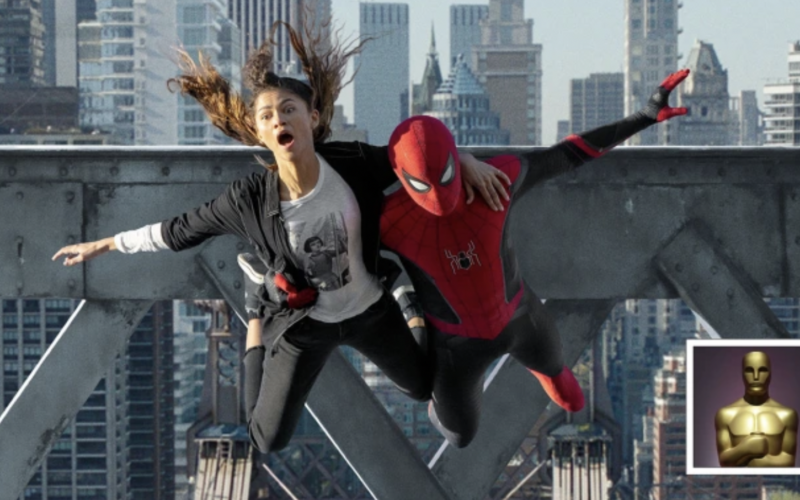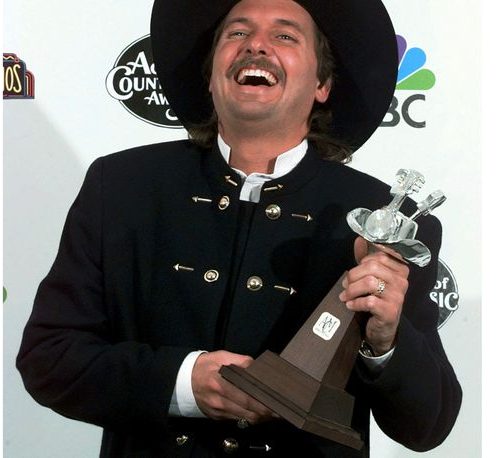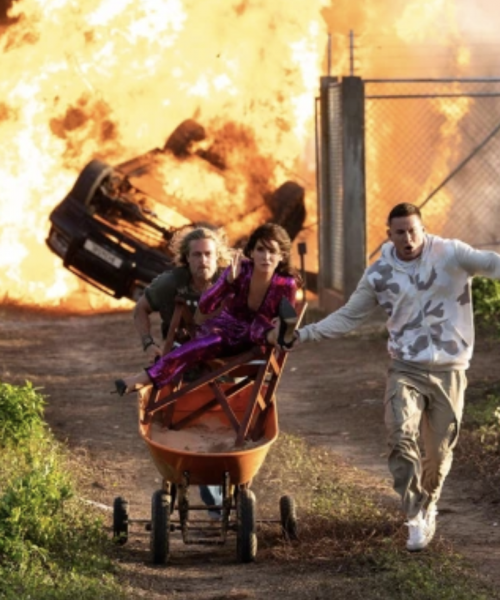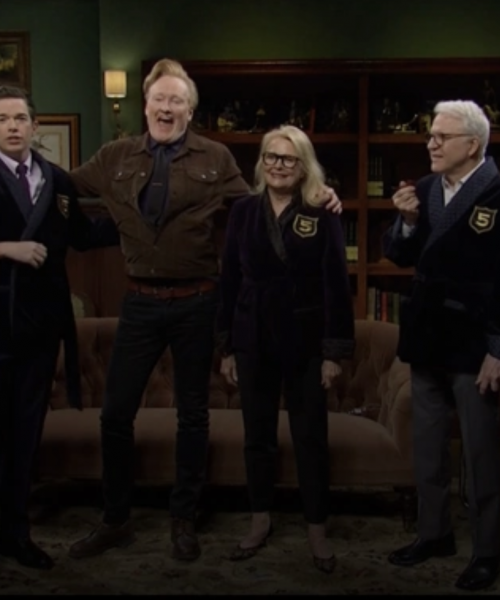BY SCOTT FEINBERG | HollywoodReporter.Com
Troy Warren for CNT #Entertainment
Holland, Marvel chief Kevin Feige, Sony chief Tom Rothman and producer Amy Pascal speak with The Hollywood Reporter in the aftermath of their film’s strong critical and historic commercial debut.
In eight films released over the last 19 years, Spider-Man has saved people falling from buildings, cars hanging from bridges and the world from any number of evildoers. But with the most recent film about the comic book superhero, Jon Watts’ Spider-Man: No Way Home, did he also save the theatrical moviegoing experience? And could he yet save the Oscars, too?
No Way Home debuted last Thursday — only in theaters — and domestically grossed an astonishing $50 million that night alone en route to a $260 million opening weekend, which is not only a pandemic-era record, but the second-best opening weekend of all time. And as we head into the Christmas weekend, it is already the highest-grossing film of 2021. Moreover, No Way Home landed a 94% rating from critics on Rotten Tomatoes, which is better than Belfast (86%), King Richard (91%), Licorice Pizza (92%) or West Side Story (94%), among other Oscar hopefuls.
With those sorts of stats, it looks like an obvious contender for a best picture Oscar nomination — if, that is, you can get past its genre. (To date, only one comic book-inspired superhero movie has ever been nominated for best picture — not 2008’s The Dark Knight, not 2008’s Iron Man and not 2019’s Avengers: Endgame, but just 2018’s Black Panther.) But at a time when movie theaters and the Oscars telecast are hanging on by a thread, should that really matter? I would argue not, as did four key players behind the film — each of whom is an Academy member and has experience at the Oscar game — during conversations we had this week.
“You can ask [Martin] Scorsese ‘Would you want to make a Marvel movie?’ But he doesn’t know what it’s like because he’s never made one,” asserts Tom Holland — who has played the title character in the three most recent Spider-Man films, having previously established himself in the 2012 Oscar-nominated film The Impossible — in reference to journalists’ and filmmakers’ often condescending attitude toward superhero films. “I’ve made Marvel movies and I’ve also made movies that have been in the conversation in the world of the Oscars, and the only difference, really, is one is much more expensive than the other. But the way I break down the character, the way the director etches out the arc of the story and characters — it’s all the same, just done on a different scale. So I do think they’re real art.”
The 25-year-old continues, “When you’re making these films, you know that good or bad, millions of people will see them, whereas when you’re making a small indie film, if it’s not very good no one will watch it, so it comes with different levels of pressure. I mean, you can also ask Benedict Cumberbatch or Robert Downey Jr. or Scarlett Johansson — people who have made the kinds of movies that are ‘Oscar-worthy’ and also made superhero movies — and they will tell you that they’re the same, just on a different scale. And there’s less Spandex in ‘Oscar movies.’”
Amy Pascal, an independent producer who was chair of Sony Pictures Motion Picture Group when the studio acquired the rights to Spider-Man more than 20 years ago, and who has remained with the franchise since leaving that post in 2015, says, “Just because they’re a certain kind of genre doesn’t mean they’re not quality movies.” Pascal, who at Sony presided over the campaigns for eventual best picture Oscar nominees The Social Network, Moneyball, Zero Dark Thirty, Captain Phillips and American Hustle, and subsequently produced best picture Oscar nominees The Post and Little Women, emphasizes, “We all got in this business to make movies that people want to see, that make people feel things, and I think this movie legitimately does that.”
Tom Rothman, who was a top executive at Fox when it released best picture Oscar winner Titanic and nominee Avatar, and who now holds Pascal’s former job at Sony, concurs. “Quality commerciality is really hard to do. No Way Home is superb filmmaking. And this is what the Academy needs to stay connected to.” He hastens to add, “I’m Mr. Fox Searchlight, right?” referring to the fact that in 1994 he founded that specialty division, which became known for art films that went on to Oscars, and served as its president for the next 18 years. “I love art films! I think it’s fabulous that art films are now recognized [at the Oscars] to the degree that they are — but not to the exclusion of quality commercial cinema.” He says half-jokingly about No Way Home, “We have to overcome, weirdly, the prejudice against the fact that it’s a big hit.”
Adds Kevin Feige, who worked on the first Spider-Man movie as a low-level executive and on the last three as the president of Marvel Studios, which also released Black Panther, “I think both of these types of films deserve recognition.” He hopes that Academy members will “think about the artistry that goes into storytelling that connects with a wide range of people on a very emotional level,” emphasizing, “It’s a good thing when people are in a theater and they stand up and cheer. It’s a good thing when people are wiping tears because they’re thinking back on their last 20 years of moviegoing and what it has meant to them. That, to me, is a very good thing — the sort of thing the Academy was founded, back in the day, to recognize.”
There is no denying that the Spider-Man franchise, which originated with 2002’s Spider-Man, has been one of the most consistently solid, critically and commercially, to emerge from Hollywood this century. Of No Way Home, Pascal submits, “This movie was 20 years in the making. It’s really a love letter to all of the Spider-Man movies that came before it, and to all of the people who worked those films, and to the superhero movie genre.”
Rothman and Feige liken the franchise to one of the few others that was comparably successful with critics and audiences, The Lord of the Rings. Feige argues, “In the way The Return of the King [the third and final installment, which swept the Oscars] was sort of a celebration and culmination of all of that amazing work that had been done on that trilogy, this is a celebration both of our Homecoming trilogy [the three most recent installments] and of the five other incarnations of Spider-Man that had happened before.” Rothman adds, “Like the third Lord of the Rings, this is the conclusion of an epic series, and is quality commercial cinema. Black Panther was quality commercial cinema. It is essential that the Academy does not lose its connection with quality commercial cinema.”
That argument carries even greater weight at a time when movie theaters are facing numerous and, to some degree, related existential threats: day-and-date releases and the pandemic. Feige calls No Way Home “a celebration of moviegoing in the theater,” emphasizing, “Spider-Man wasn’t on streaming and available at home. People had to get in their car and drive to a movie theater and watch this thing with other people. That, to me, is the magic of the movies. So this has been very, very meaningful for our industry.” Rothman feels the Academy should consider that: “This is a big picture on the big screen at a moment when the big screen experience is fighting for its life. This is a chance for the Academy to strike a blow for the big screen.”
Moreover, the group contends, No Way Home — like the host of biopics and period dramas and ‘prestige films’ that most people assume the Academy will gravitate towards — has relevance to and something important to say about the world today. “This movie is about personal sacrifice for the greater good,” states Pascal. “That kind of sacrifice is what Spider-Man has always been about, but I think this movie, in particular, really hits that.” Rothman adds, “You cannot have real heroism without sacrifice. It’s in a pop context, but this character gives up everything for the greater good, and that’s why the movie is so moving.”
The No Way Home team is uniformly optimistic that today’s Academy is more open to recognizing a high-quality popcorn movie than the organization was just a few years ago. “This is why they expanded the best picture category to 10 films, for exactly this circumstance,” Rothman opines, while dismissing those who advocate for nominating No Way Home because doing so might goose the ratings of the Oscars telecast. “I don’t give a darn about the ratings on the Academy show and I don’t think that’s what it should be about. I don’t think anybody should vote for this movie because they think it would help the ratings. I think they should vote for this movie because it’s one of the 10 best films of the year.”
Feige, who also understood the best picture category expansion to have occurred “so that a wider array of films could be recognized,” further notes that the Academy, of late, has “made strides” towards greater diversity, not just in terms of race and gender, but also age and location. And Pascal, a former member of the Academy’s board of governors, notes that many of today’s members grew up with the Spider-Man franchise. “I think it would be wonderful for the Academy to recognize all kinds of movies. And I hope that since there’s a guaranteed 10 movies, and since there’s a whole new membership, maybe they will.”
Like the folks behind other movies with Oscar aspirations, the No Way Home contingent is committed to giving their film a real campaign. I have learned that they will eventually add the film to the Academy’s members-only streaming service for easy access at home, but first, to encourage Academy members to see it on a big screen, they are offering free “pass-ins” for anyone (and their guest) who shows an Academy member card at a commercial theaters each Monday through Thursday. They will also spend some of the money they have generated at the box office on FYC advertising in industry publications and hot-spots. And they are prepared to do the traditional dog-and-pony show stuff — targeted screenings, Q&As, interviews, etc. — to the greatest extent possible given COVID.
“Anything that makes people aware of the movie is something that, obviously, we’re all going to give our all to,” assures Pascal. “And the studio has been very generous and supportive. They seem really gung-ho.” Holland, for his part, says he’s gung-ho to hit the trail on behalf of the film. “I’m so proud of what everyone’s achieved,” he explains, “Jon Watts especially, and even the likes of Amy Pascal. We had a wonderful day the other day. I went over to her house and we watched a couple of movies together, and she really opened up about her career and the changes in her career and a lot of the controversy that she went through [related to the Sony hack]. So to see her where she is now, a different Amy to the Amy I’m sure she was years ago? These people deserve the recognition.”
[Do not read on if you have not yet seen the film.]
Holland continues, “It will also be nice to start talking about the film now that everyone has seen it! There’s so many stories I haven’t told because it’s all been a secret. You know, Andrew [Garfield] and Tobey [Maguire] and I had one of the most incredible experiences working together. We’re the only three people to have ever played this character on the big screen, and that creates this brotherhood, this friendship, that goes past just knowing each other. We have a shared experience that only us three have, and because of that connection, the relationship that we had on set — I’m sure it comes across on screen — was like we were long-lost brothers. And I want to talk about it. Honestly, it was the highlight of my career. Put me on stage in front of a thousand people. I have so much to tell that I haven’t been allowed to. I’d love to keep talking about this movie.”
Says Feige in parting, “Making a commercial film that can say something and mean something to a lot of different types of people around the globe is extremely difficult to do and, I think, is dismissed often as easy. ‘Well, you have a superhero in it, and that’s a cheat-code to success.’ It’s not. Putting on a costume is not the secret. The secret is having artists and storytellers and craftsmen that can bring an audience on a journey. And when critics recognize that and audiences recognize that, it feels like it’s worthy then to talk about the Academy recognizing it. And that, I think, is what we’ll continue to talk about over the next few weeks.”
SIDEBAR: Would Tom Holland be open to hosting the Oscars?
Of the response to No Way Home, Holland told me, “If I’m honest, I don’t think that anything will ever match this — this is kind of the peak,” adding with a chuckle, “It’s just a shame it happened when I’m 25.” But could Holland have another career milestone right around the corner? Some industry insiders have encouraged the Academy to beg and plead for Holland — perhaps with his No Way Home costar Zendaya and/or his Spider-Man predecessors Maguire and Garfield — to host the Oscars telecast on March 27.
We asked Holland, who has a background in singing and dancing, if he would be open to the idea, and his response was as follows: “Maybe in the future, but in all honesty I’m just too busy right now. I don’t have the time. I’ve got an Uncharted press tour to do, and then I start shooting in early March for this TV show [Apple TV+’s The Crowded Room] which is going to take up a lot of my time and is definitely the hardest role I’ve ever taken on. So maybe one day in the future. But no, not right now. Honestly, I just don’t have the time. And you know I would love to do that — I love that kind of thing, I love being put under pressure and doing things that I feel uncomfortable doing. So I’m interested in it, but I just don’t have the time.”
We hung up the phone, and then two minutes later Holland called back. “I just wanted to quickly backtrack on what I said. You asking me about the Oscars — you’re the first person to bring that up — and I’m sitting here going, ‘Of course I would host the fucking Oscars!’ I just went to the bathroom and I was looking at myself in the mirror and I was like, ‘What kind of fucking idiot wouldn’t host the Oscars?’ So yeah, if they ask me to, I would, and it would be very fun. I would really enjoy it.”
Would he prefer hosting solo or with someone else? “Either/or. I don’t mind. By myself would be great, and with someone I love would be even better. I think a shared experience is always better than a solo experience. I’m happy with either, but it would be a very fun evening — I’m sure very stressful, but it would be a lot of fun.” I couldn’t resist one last follow-up: does he think he could convince Zendaya to do it with him? “I could run it by her. But as for her answer, I’m not too sure.”
A March date would still be tricky for Holland to pull off, but if the date of the Oscars — like the date of a number of other award shows this season — is pushed back a little because of the pandemic, perhaps the stars could align!
In Other NEWS




































